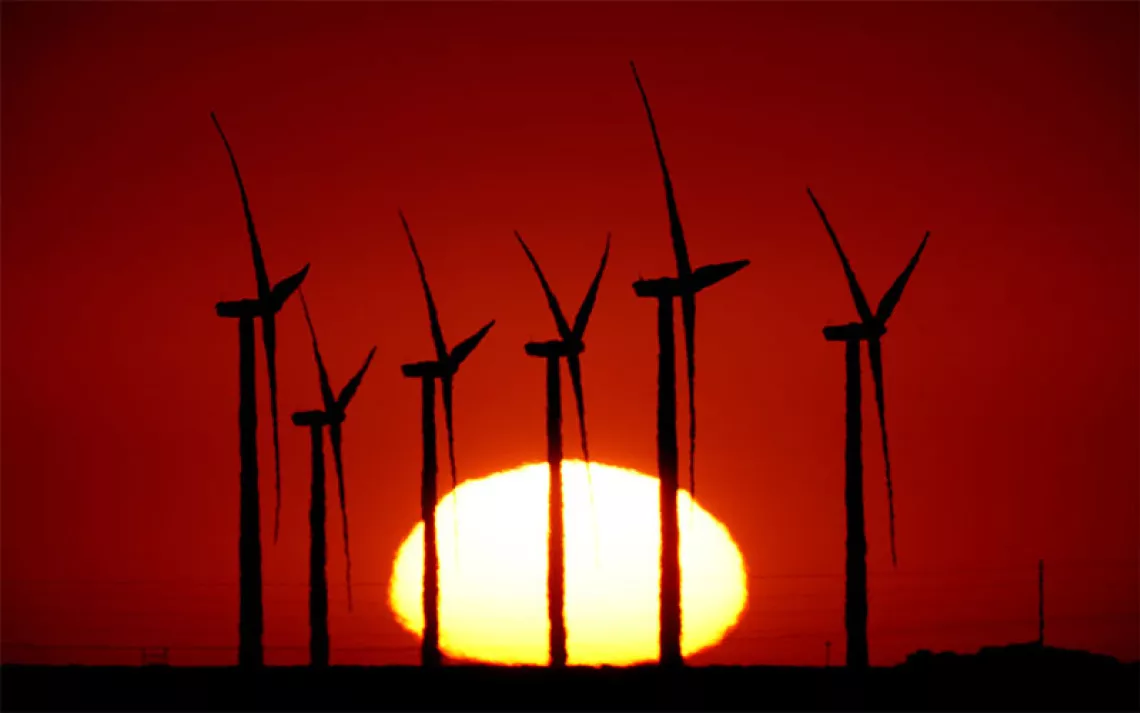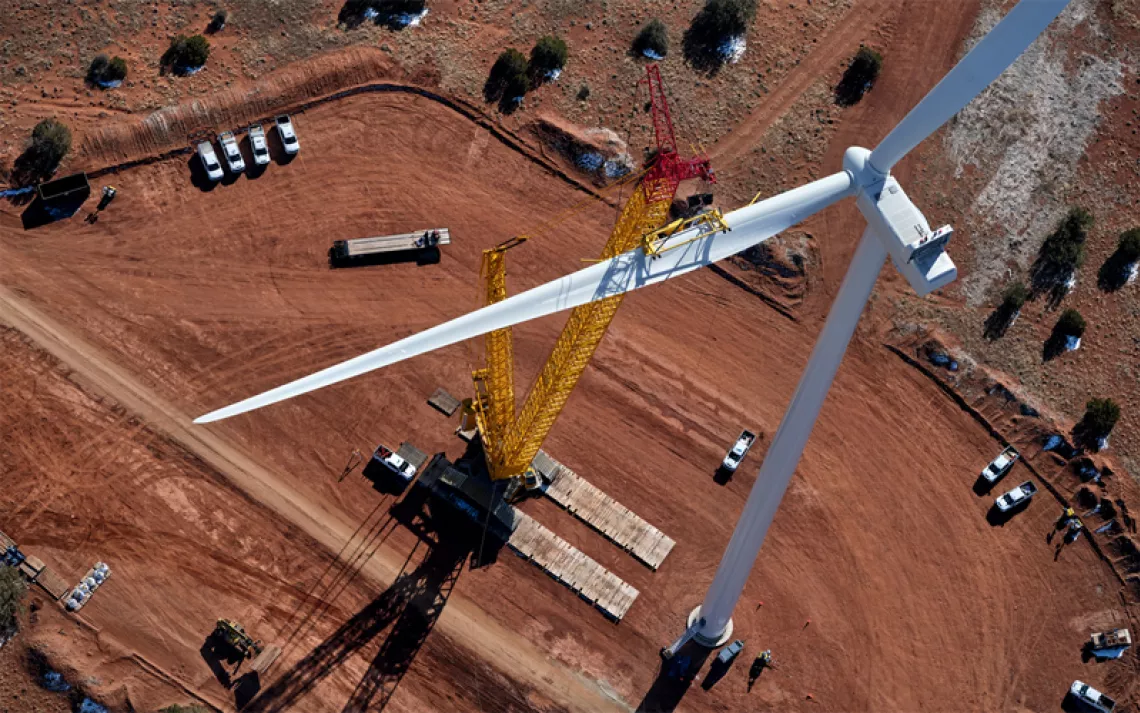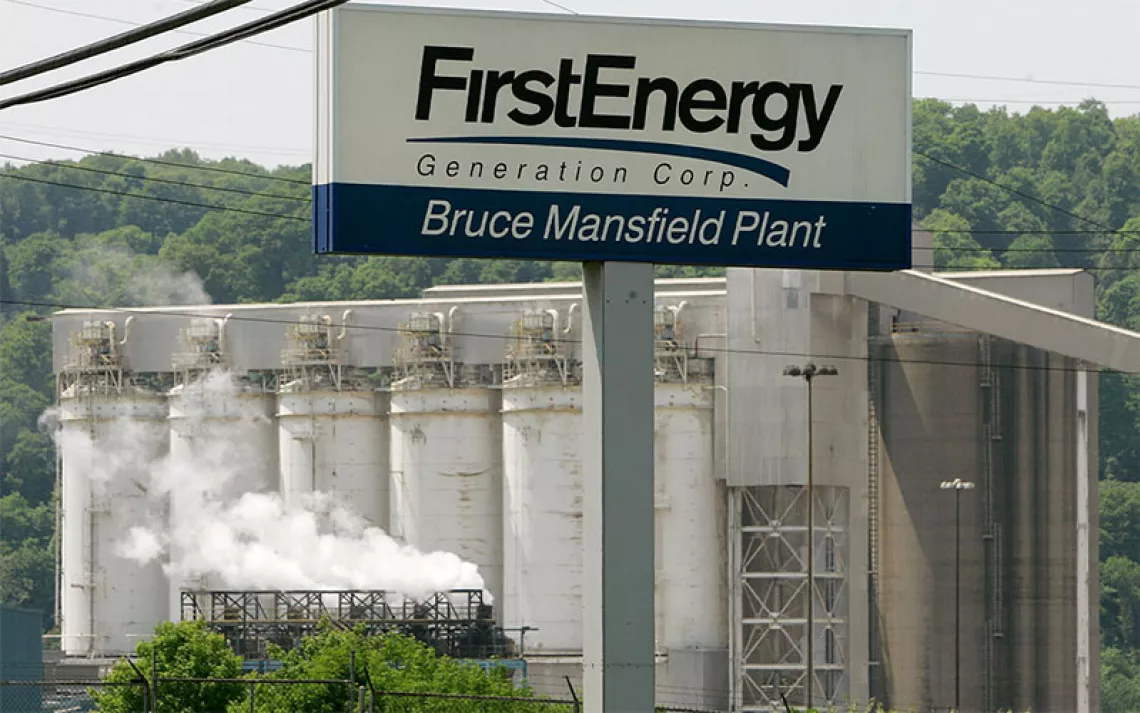Trapdoor Social Wants to Solar-Power Rock 'N' Roll
The rockers and their Sunstock Festival raise money for solar installations
Adapted from an interview with Skylar Funk by Katie O'Reilly.
It was in Pomona College's Environmental Analysis Program that I met my bandmate Merritt Graves. The course discussed urban infrastructure and how cities use resources like passive solar. Once Merritt and I formed an alternative rock band, we found ourselves talking constantly about all this Southern California sunshine that tends to go to waste. From day one, we wanted to create an artistic project with leverage to have an environmental impact—we called it Trapdoor Social. That's also when I found out about the Sierra Club's Beyond Coal campaign and started going to meetings and volunteering. Petitioning for the campaign was my first real experience in L.A.'s environmental movement, and I found I really admired that community. So when Trapdoor Social prereleased its second EP in 2014, we partnered with the Sierra Club, Grid Alternatives, and a small nonprofit called Everybody Solar to throw a fundraising event. We used the money to purchase solar panels for Homeboy Industries, which is an awesome local organization that provides former gang members with job training and support.
By then we were driving around the country to play shows. It was exciting, but it frustrated us to be burning so much gas—this wasn't in line with our values. So in 2015, I started designing a solar generator that could hypothetically power our shows. As I was preparing to retrofit our trailer with the batteries and panels and everything I wanted to install, I came across a gentleman who was selling the exact trailer I wanted to build but couldn't actually build because I'm not an engineer. His central California company, Mobile Solar, has been building solar trailers since 2005. He'd built our ideal trailer as a prototype—it had batteries and panels and a 3.5-kilowatt inverter, which is more than enough to power the scale of our typical concerts—and was trying to get it off the lot, so he gave us a good deal.
We hitched it to our van and did our first solar show in Colorado Springs, which went great; the generator powered all the sound equipment and LED lights we needed to perform. We started towing the trailer behind our van whenever we could. Batteries and solar equipment are not light—we've lost three transmissions. But the hardest part about solar shows is finding a legitimate place where you can plug in the trailer's generator so as not to get the police involved. We did most shows during that tour in backyards and breweries and on beaches and farms.
When we got back to L.A., we found ourselves with an opportunity to play at the Autry, a museum in Griffith Park with a big lawn. It was a really sweet spot but not right for our usual 100-person gathering. So Merritt and I decided to go full festival mode. In June 2016, we hosted our first Sunstock Solar Festival—my girlfriend came up with the name. There was food, beer, great bands, and a bunch of nonprofits tabling and engaging with fans. It was awesome—but it's not easy to start a festival! We lost money. I spent seven months of my life organizing it.
We did a second Sunstock festival in September 2017, which raised money to help fund a solar project at a local high school. Afterward, we took the trailer to the Standing Rock encampment, to help power a kitchen and some tepees and camps. We invited activists to come by and charge their devices in the trailer, too. We were there purely as activists; the focus was on indigenous leadership and indigenous music. I don't think hearing some rock band from L.A. was on anyone's short list.
We've started treating a lot of shows like mini Sunstock festivals.We've done Sunstock Berkeley and Sunstock Gainesville. The vibe is about providing calls to action and having organizations on-site. Increasingly, we find that our mission informs our music.
This article appeared in the May/June 2018 edition with the headline "Solar-Powered Rock Stars."
This article has been updated since publication.
 The Magazine of The Sierra Club
The Magazine of The Sierra Club



